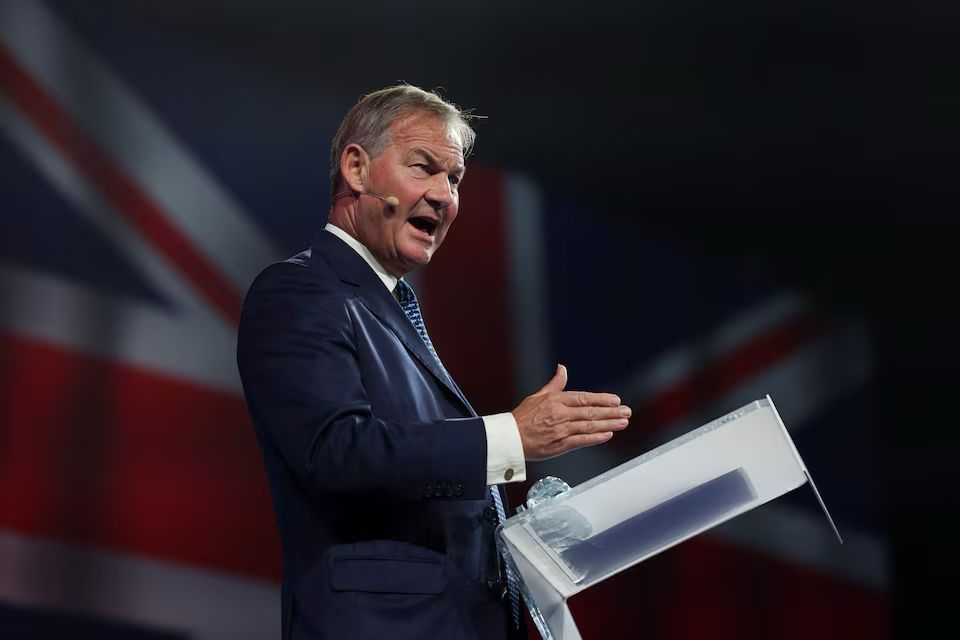British prosecutors have decided not to bring any charges against former Reform UK party lawmaker Rupert Lowe over allegations that he made threats of physical violence against the party’s chairman, Zia Yusuf.
The Crown Prosecution Service (CPS) reviewed the allegations and concluded that there was insufficient evidence to secure a conviction. According to Malcolm McHaffie, Head of the CPS Special Crime Division, “Having considered several witness statements, we have concluded that there is insufficient evidence to provide a realistic prospect of conviction.”
Read also: Farage reveals 29 councilors have defected to reform
Reform UK, led by Brexit campaigner Nigel Farage, has recently overtaken Prime Minister Keir Starmer’s Labour Party in opinion polls as Britain’s most popular political party, despite having only five members of parliament.
However, the party has faced divisions, with the lawmaker questioning Farage’s ability to lead the party, U.S. billionaire entrepreneur Elon Musk even suggested that Lowe should replace Farage. This internal conflict has led to former Reform UK party lawmaker from the party.
Lowe transferred to police
Reform UK referred Lowe to the police in March, alleging that he had made threats against its chairman, Zia Yusuf. Additionally, the party claimed to have received complaints against Lowe from two female employees in his parliamentary office, accusing him of serious bullying. He denied these allegations, stating they were untrue and false.
The CPS announced its decision not to pursue charges against him, citing a lack of evidence. The 67-year-old who remains in parliament as an independent lawmaker after being suspended by Reform responded to the CPS decision by stating that he had been targeted by a “brutal smear campaign”. He further criticised Nigel Farage, saying, “Farage is no leader – he is a coward and a viper”. The ex-lawmaker believes the police process was used to silence him after he raised concerns about Farage’s leadership.
He has expressed his determination to move forward, having instructed solicitors to begin defamation action over the claims. He maintains that his criticisms of Farage were constructive and aimed at improving the party.



